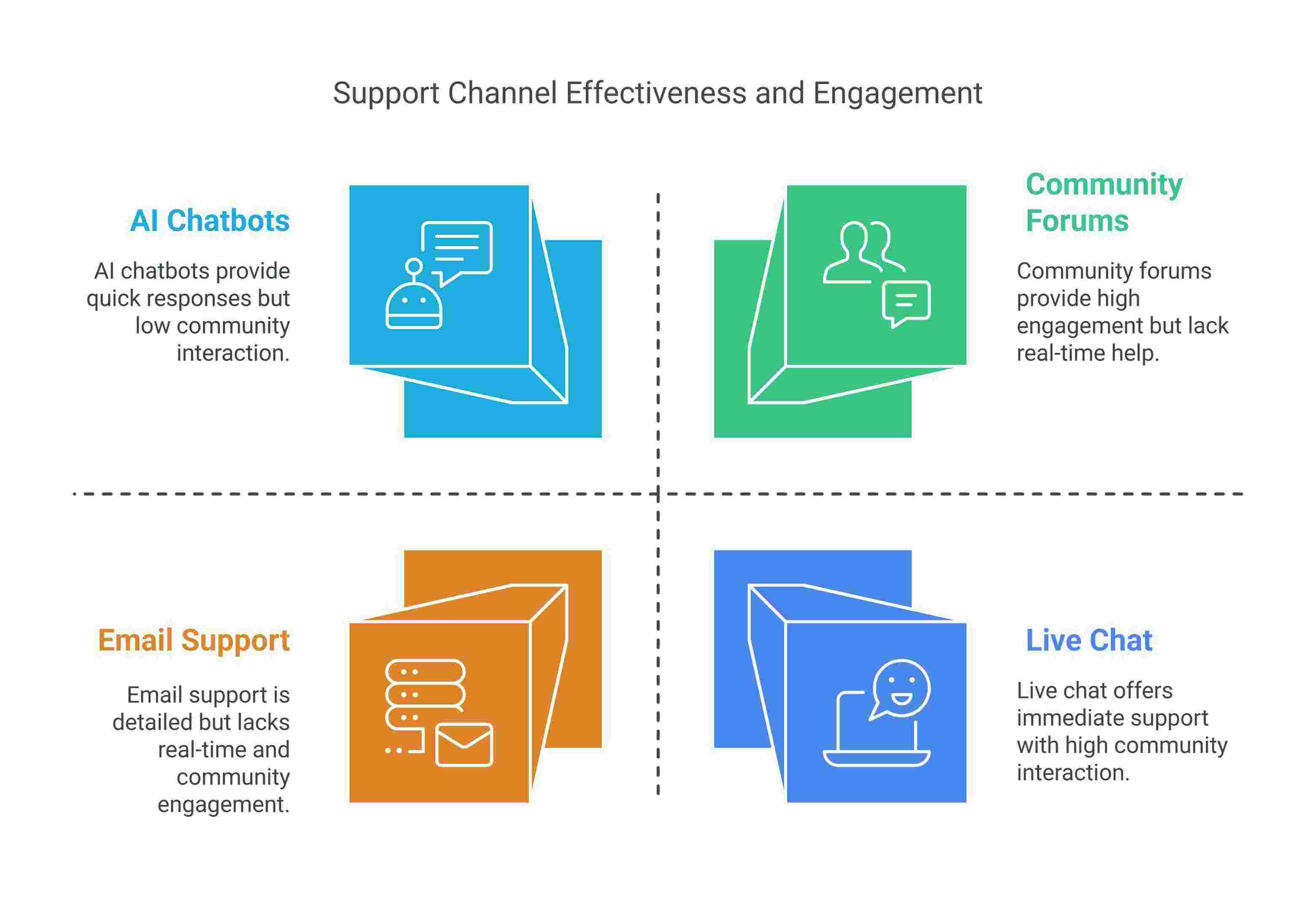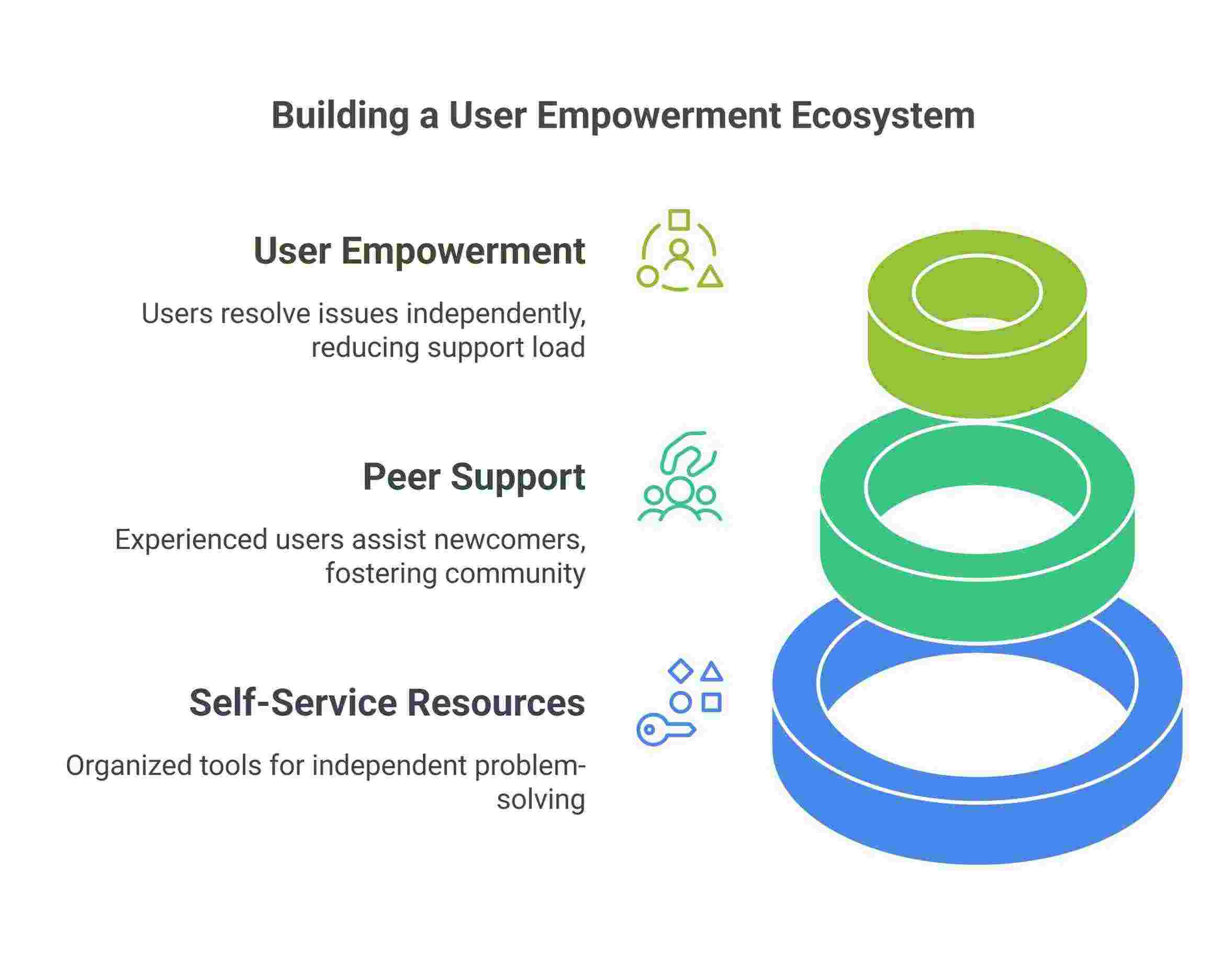Enhancing User Trust and Engagement Through Effective Customer Support in P2P Crypto Tutoring
In a peer-to-peer (P2P) crypto tutoring platform, customer support plays a critical role in ensuring smooth interactions between tutors and learners. Given the complexities of cryptocurrency and blockchain technology, users often require assistance with transactions, security concerns, and platform navigation. A well-structured support system not only resolves issues efficiently but also fosters trust and engagement within the platform.

1. The Role of Customer Support in a P2P Crypto Tutoring Platform
Customer support is the backbone of any P2P crypto tutoring platform, ensuring that users have a seamless learning experience. Since cryptocurrency and blockchain concepts can be intricate, even experienced users may encounter challenges related to payments, wallet integrations, or understanding the platform’s functionalities.
A robust customer support system enhances user satisfaction by offering timely and accurate assistance. Whether resolving transaction issues, guiding users through the verification process, or troubleshooting technical glitches, a dedicated support team ensures that learners and tutors can focus on knowledge exchange without unnecessary hurdles.
Beyond issue resolution, efficient support builds trust and credibility. In an industry where scams and fraudulent activities are a concern, responsive and transparent customer service reassures users that the platform operates with integrity. Quick resolution of disputes and proactive communication foster a sense of reliability, encouraging both tutors and learners to engage more actively.
2. Key Challenges in Providing Support for Crypto Tutoring Platforms
While customer support is essential, P2P crypto tutoring platforms face unique challenges that require specialized solutions.
Technical Issues and Payment Disputes
One of the most common challenges is addressing technical issues such as failed transactions, incorrect wallet addresses, or blockchain network congestion. Unlike traditional payment systems, crypto transactions are irreversible, making it crucial for support teams to provide clear guidance on how users can prevent and resolve payment-related problems.
Additionally, since tutoring platforms operate on a P2P model, disputes over payments between tutors and learners can arise. A strong dispute resolution process, backed by smart contracts or escrow systems, helps mitigate conflicts and ensures fair outcomes.
Educating Users on Security Risks and Fraud Prevention
The decentralized nature of crypto transactions also means that users must be vigilant against phishing attacks, wallet compromises, and fraudulent activities. Customer support teams must not only resolve issues but also educate users on best security practices, such as enabling two-factor authentication (2FA), recognizing scam attempts, and safeguarding private keys.
Proactive education through FAQs, security guides, and automated alerts can reduce the frequency of security-related issues, allowing users to navigate the platform safely and with confidence.
3. Essential Support Channels for Maximum User Engagement
To provide seamless assistance, a P2P crypto tutoring platform must offer multiple support channels that cater to different user preferences. A well-structured support system ensures quick issue resolution and enhances user engagement.

Live Chat, Email, and Ticketing Systems
Live chat support is one of the most effective ways to assist users in real time, especially when dealing with urgent concerns like payment failures or technical issues. AI-powered chatbots can handle basic inquiries instantly, while human agents step in for more complex problems.
Email and ticketing systems are crucial for handling detailed queries that require thorough investigation, such as disputes over payments or verification issues. By integrating a robust ticketing system, the platform can track user concerns efficiently and provide timely responses.
Community-Driven Support Through Forums and Social Platforms
In addition to direct customer support, community-driven support through forums and social media groups can be a valuable resource. Crypto communities are often highly engaged, and experienced users can help answer questions, share solutions, and guide newcomers. Platforms like Discord, Telegram, and Reddit allow for real-time discussions and peer-to-peer problem-solving.
By encouraging community interaction, the platform can reduce the burden on customer support teams while fostering a collaborative learning environment.
4. Leveraging AI and Automation for Efficient Support
AI-driven customer support is transforming the way P2P platforms handle user inquiries. By automating common support tasks, platforms can provide instant assistance while allowing human agents to focus on complex issues.
Chatbots for Instant Responses
AI-powered chatbots can handle frequently asked questions, such as how to deposit funds, withdraw earnings, or verify an account. By integrating natural language processing (NLP), chatbots can understand user queries and provide relevant responses, improving efficiency and user satisfaction.
AI-Powered Troubleshooting and Personalized Assistance
AI can analyze common user issues and provide tailored solutions based on previous interactions. For example, if a user frequently encounters payment issues, the AI system can proactively offer troubleshooting steps or suggest security enhancements to prevent future problems.
Automation also helps in fraud detection by identifying suspicious patterns and alerting users about potential risks. By combining AI with human oversight, P2P crypto tutoring platforms can provide smarter, more responsive customer support.
5. Ensuring Security and Compliance in Customer Support
Security is a top priority in crypto-related platforms, and customer support plays a key role in protecting users from fraud and regulatory risks.
Protecting User Data and Financial Transactions
Support teams must handle sensitive information, including wallet addresses and personal verification details, with strict security protocols. Implementing end-to-end encryption, multi-factor authentication, and secure data storage practices ensures that user data remains protected.
Additionally, support agents should never request private keys or passwords from users. Educating users about security best practices can further prevent social engineering attacks and phishing scams.
Adhering to Crypto Regulations and Platform Policies
Compliance with global crypto regulations is essential for ensuring platform legitimacy. Customer support teams must be well-versed in KYC (Know Your Customer) and AML (Anti-Money Laundering) policies to guide users through identity verification and compliance requirements.
A transparent approach to compliance not only safeguards the platform from legal risks but also reassures users that their funds and personal data are handled responsibly.
6. Building a Self-Service Knowledge Base for Users
A well-organized self-service knowledge base empowers users to find answers to their questions without waiting for support assistance.

Creating FAQs, Video Tutorials, and How-To Guides
A dedicated help center should include:
- FAQs: Covering common queries related to account setup, payments, and security.
- Step-by-Step Guides: Providing clear instructions on using platform features.
- Video Tutorials: Offering visual walkthroughs for complex processes like setting up a crypto wallet or resolving payment disputes.
By making these resources easily accessible, users can resolve common issues independently, reducing the workload on customer support teams.
Encouraging Peer-to-Peer Support Within the Community
A user-driven support ecosystem, where experienced members help newcomers, strengthens engagement and builds a sense of community. Platforms can incentivize active contributors through reputation points or rewards, encouraging a culture of knowledge sharing.
7. Measuring and Improving Customer Support Performance
To maintain high-quality customer support, platforms must track performance metrics and continuously optimize their support strategies.
Tracking KPIs Such as Response Time and Resolution Rate
Key performance indicators (KPIs) help assess the efficiency of customer support teams. Important metrics include:
- Average Response Time: How quickly support agents address user inquiries.
- First Contact Resolution Rate: The percentage of issues resolved on the first interaction.
- User Satisfaction Score (CSAT): Ratings from users on their support experience.
Regular analysis of these KPIs ensures that support services remain responsive and effective.
Gathering User Feedback to Enhance the Support Experience
User feedback is crucial for identifying pain points and improving support processes. Conducting regular surveys, monitoring support interactions, and analyzing complaint trends help refine the support system.
By continuously adapting to user needs, P2P crypto tutoring platforms can ensure a seamless and positive experience for all users.
Conclusion
Customer support is the foundation of a successful P2P crypto tutoring platform. By offering multiple support channels, leveraging AI automation, ensuring security compliance, and continuously improving through user feedback, platforms can enhance the overall user experience. A well-supported community fosters trust, encourages engagement, and ultimately drives the platform’s growth in the evolving crypto education space.







.png)






